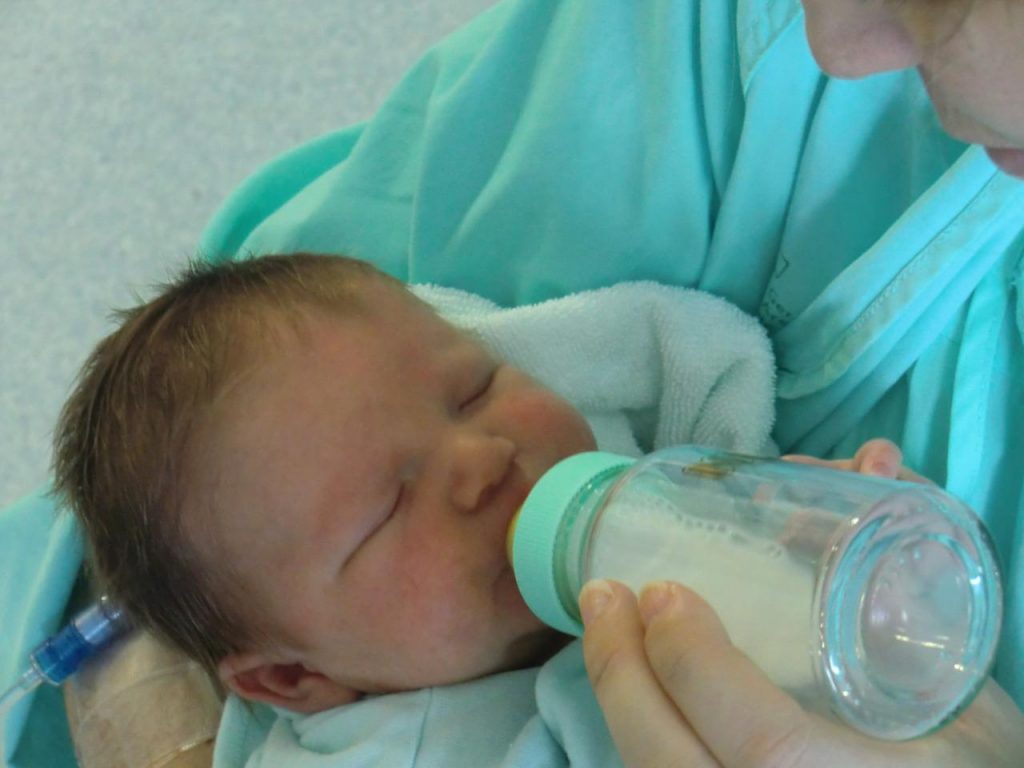Why Severe Baby Formula Shortages May Worsen Again
Baby formula shortages that had just been getting better may worsen again due to the unexpected re-closure of a major producer.
This article is more than 2 years old

The supply of baby formula in the United States is under threat once more. The crushing news comes as Abbott Nutrition halted production at its Michigan plant due to severe thunderstorms that caused power outages and flooding inside the facility. In a statement issued earlier this week, the company addressed the impeding shortages, saying it stopped producing EleCare and other specialty and metabolic formulas at the Sturgis location.
During the closure, Abbot will assess the damage caused by the storm and clean and re-sanitize the plant. The delay should not worsen the baby formula shortage because the existing supply should be sufficient. In June, the plant had produced 8.7 million pounds of infant formula which is equivalent to 168.2 million 6-ounce feedings. A spokesperson said that represented 95% of the company’s output in the month before its February product recall and the Sturgis plant’s closure.
According to NPR, Abbott issued a voluntary recall of EleCare and other specialty formulas after four infants became sick with bacterial infections. They had consumed products made at the Michigan plant, with two babies ultimately dying. While necessary, the recall only exacerbated the larger nationwide baby formula shortage that has been a major stressor for parents. To ease the strain, the Biden administration has been working to import formula from overseas. The President also invoked the Defense Production Act to help local production.
To prevent further setbacks, the Food and Drug Administration has been informed of the closure and will conduct comprehensive testing to ensure the facility is safe to resume production in a few weeks. Addressing the baby formula shortage, FDA Commissioner Dr. Robert M. Califfn said that the measures taken mean the country should have enough product to meet demand from the public.
Califfn also assured the public that everyone involved wants to get the facility up and running quickly and safely. “We know Abbott is working quickly to assess the damage and will be reporting its progress to us in the days ahead,” he said in a post on social media. Once the company establishes a plan, the FDA will return to the facility to ensure that they can quickly start producing safe and quality baby formula to avoid a shortage.
Unfortunately, retail stocks of regular formula remain low despite everyone’s best efforts. Store shelves were only 76.5% stocked for the week ending June 12, according to The Washington Post. As such, the Abbot incident highlights the fragile nature of the supply chain regarding the only food source for some infants. Unfortunately, the baby formula shortage is also causing postpartum depression in new mothers. Experts predict the problem will only get worse if the supply chain remains strained.
The baby formula shortage is particularly acute in the Upper Midwest, with low-income Americans being hit the hardest as food banks and other assistance programs report low supplies. Luckily, the FDA announced steps to bring 4.5 million pounds of formula base powder from Mead Johnson’s Singapore facility to a location in Minnesota to step up production of Enfamil for newborns. It hopes this will produce about 5.7 million cans between July and November, The Washington Post reports.





